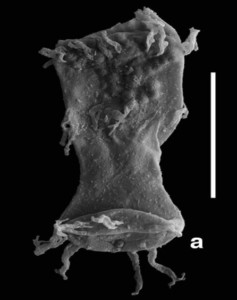
Mutant Silurian plankton indicate oceanic anoxia spread and metals poisoning in the sea … 420 million years ago. Not scifi but real life research pinpointing onset of global extinctions. Listen to radio interview of Professor Kathleen A. Campbell discussing these new research findings on Radio NZ’s Checkpoint programme.






